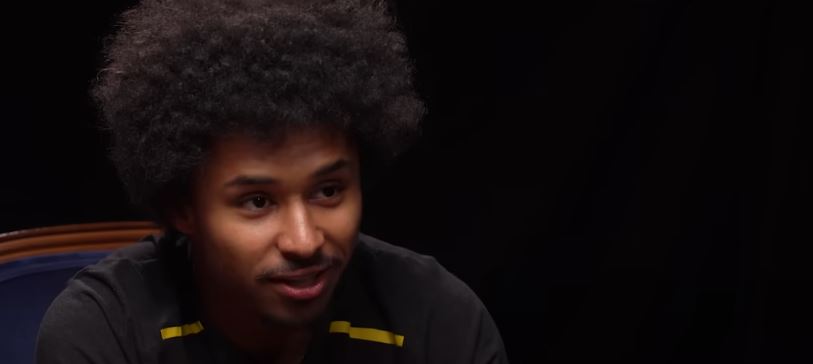Karim Adeyemi carries a cross-continental narrative that is subtly complex, emotionally grounded, and incredibly relatable. He doesn’t just glide down flanks with explosive pace. His journey is influenced by his deep personal heritage in addition to his professional aspirations, having been raised in Munich by parents whose lives took place thousands of miles apart. While his Romanian mother, Alexandra, brought academic rigor and quiet stability to their home, his Nigerian father, Abbey, came to Germany in the late 1990s to pursue a football dream that never really came to fruition. Together, they created a philosophy rather than just a foundation.
Karim’s parents made room for layered identity by promoting dual belonging instead of imposing assimilation. Growing up in Ibadan, Abbey brought Yoruba values and a love of community-driven development into their home. Bucharest-born Alexandra, a qualified geographer, contributed a well-researched viewpoint that emphasized the value of education and fortitude. Although their parenting was quiet, it was incredibly successful in producing a young man who was rooted in empathy, heritage, and purpose, rather than just a football player.
| Karim Adeyemi: Personal and Career Overview | |
|---|---|
| Full Name | Karim-David Adeyemi |
| Date of Birth | January 18, 2002 |
| Place of Birth | Munich, Germany |
| Nationality | German |
| Father | Abbey Adeyemi (Nigerian) |
| Mother | Alexandra Adeyemi (Romanian) |
| Position | Winger / Forward |
| Current Club | Borussia Dortmund |
| Senior Germany Debut | September 5, 2021 vs. Armenia |
| Youth Clubs | Bayern Munich, SpVgg Unterhaching |
| Senior Clubs | FC Liefering, Red Bull Salzburg, Borussia Dortmund |
| Official Source | Wikipedia |
Karim’s recent return to Nigeria was more than just a photo opportunity; it was a purposeful homecoming. He is making an investment in future lives—something more enduring than awards—through the Karim Adeyemi Foundation, which was established in Ibadan. Borussia Dortmund is supporting the initiative, which was created in collaboration with local stakeholders and aims to empower young people by providing them with access to education and organized football training. His method is especially creative since it combines top-tier athletics with education to help children develop not only as athletes but also as thinkers.
The foundation is turning Ibadan’s athletic potential into a steady supply of talent by making high-quality coaching and fundamental educational resources more accessible. This mission comes from a very personal place for Karim. He remembers going to local pitches as a child and playing with barefooted children. In a recent interview, he stated, “It’s a small story, but it touched my heart all my life.” Now, a whole movement is driven by that memory.

Karim didn’t stand out from the crowd when he visited the Olubadan Stadium; he officiated youth games, gave out medals, and spoke with players face-to-face, clearly moved by their enthusiasm. He expressed his aspirations to see some of these kids travel to Europe in the future while being accompanied by his father and club representatives. The gesture was strategic rather than symbolic. Karim is sowing seeds by including Dortmund in the mix that may eventually yield professionals headed to Europe from areas where aspirations frequently stall before they begin.
This story’s remarkable resemblance to the experiences of other well-known athletes who have intentionally crossed cultural boundaries is what makes it so captivating. Raised in Greece by Nigerian parents, Giannis Antetokounmpo has donated millions of dollars to youth initiatives in Africa. Alphonso Davies, a UNHCR ambassador, was born to Liberian parents in a refugee camp in Ghana. Karim is institutionalizing his roots rather than merely honoring them. Highlight reels rarely display that kind of clarity, but in communities where representation still feels aspirational, it strikes a deep chord.
Adeyemi has already established a solid reputation on the field. His natural talent is evident, as evidenced by his scoring in his senior debut for Germany and his setting of the Bundesliga’s fastest sprint record of 36.65 km/h. His off-field pursuits, however, give him remarkable versatility in both character and athletics. He’s one of the few players who can talk about community building and tactics with ease at the same time.
For kids who watch him, particularly those from biracial or immigrant families, his story provides a blueprint rather than just motivation. He doesn’t downplay his European background to acquire street cred, nor does he hide his Nigerian heritage to satisfy German expectations. He skillfully combines the two, demonstrating that complexity is a strength rather than a weakness, particularly when handled authentically.
Karim has a mental advantage that is frequently disregarded in football because of this dual identity, which Abbey and Alexandra purposefully fostered. It enables him to move with noticeably greater emotional agility between cultures, expectations, and even criticism. He responded clearly and without defensiveness when asked about his relationship with rapper Loredana Zefi and the public narratives that followed. He stood by his choices while staying focused on his game.
